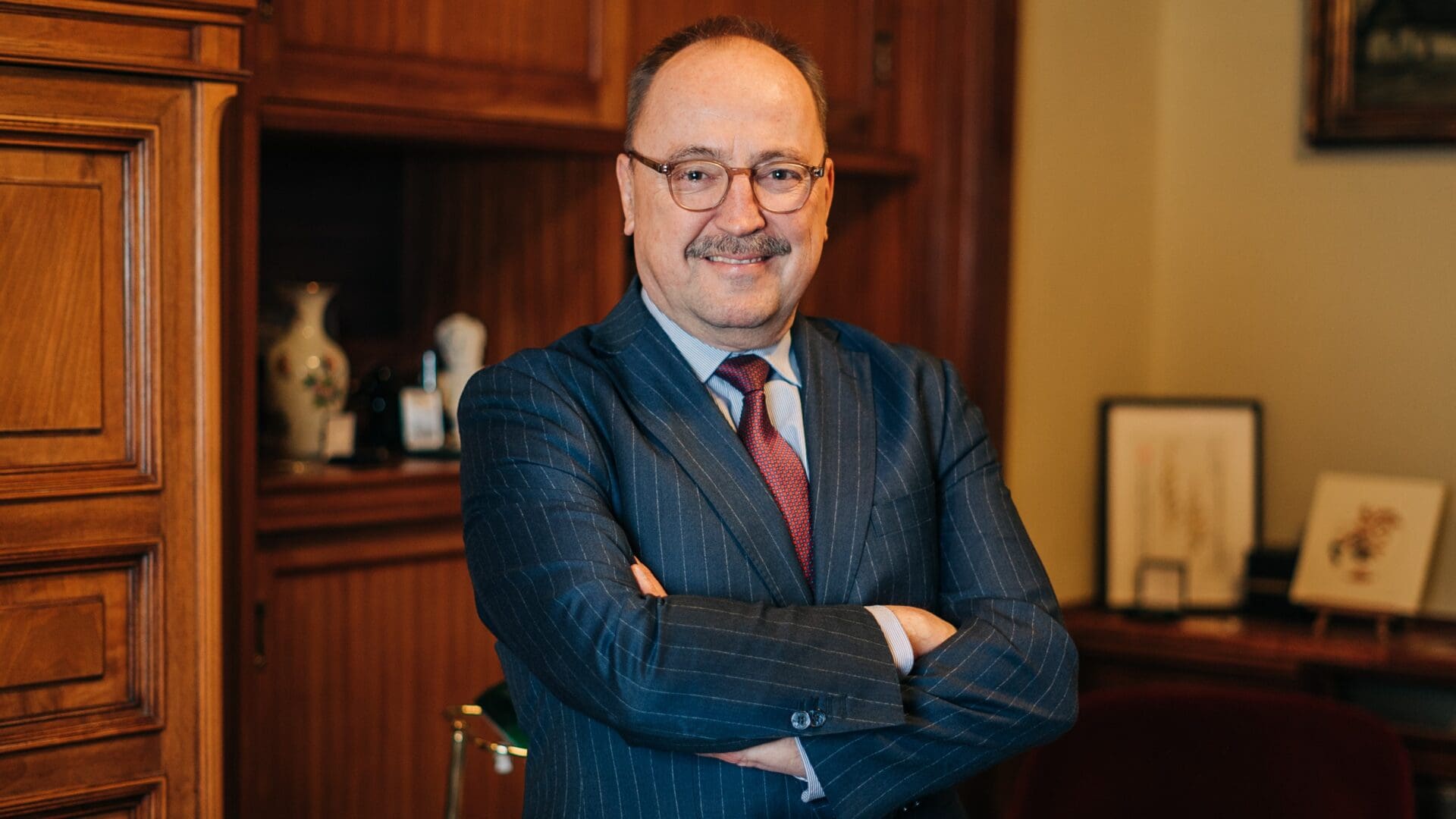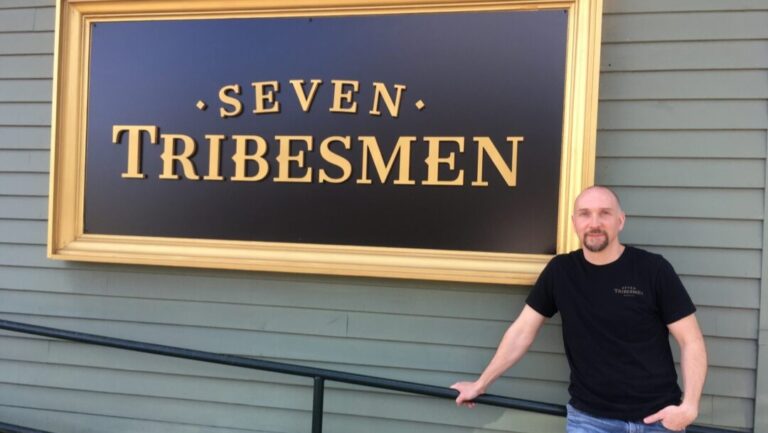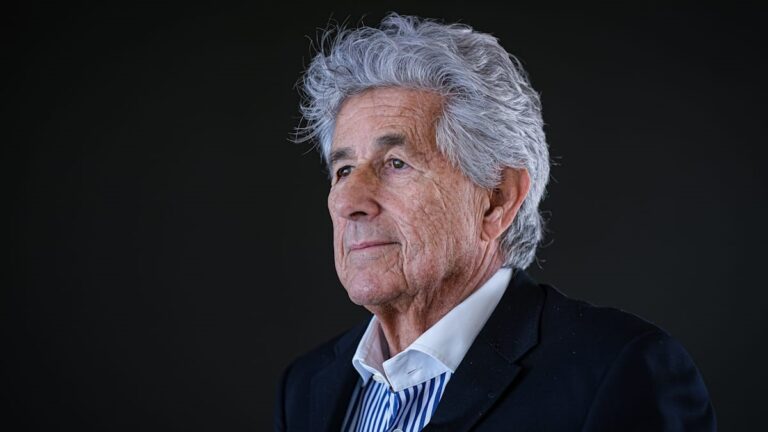Zsolt Németh is a Hungarian economist and politician, who served as Secretary of State for Foreign Affairs between 2 June 2010 and 5 June 2014, a position he previously also held from 1998 to 2002, both under Foreign Minister János Martonyi. He became a member of the National Assembly (MP) in the 1990 parliamentary election. Németh served as president of the Parliamentary Committee on Human Rights, Minorities and Religion from 1993 to 1994 and of the Parliamentary Committee for Foreign Affairs from 2002 to 2010 and from 2014.
12 March marked the anniversary of Hungary’s accession to NATO. How would you evaluate the decades of Hungary’s NATO membership?
As Hungary joined NATO in 1999, we now really have a historical perspective from which we can look back on these almost twenty-five years. The experience is that, historically, NATO has meant a unique security for Hungary. That is why it is an extremely important achievement that over the decades the active support of Hungarian society for NATO membership has been maintained. Especially if the current perception and support for the Alliance is compared to the reputation of the European Union. But I am not just happy with the lessons of the past two and a half decades. NATO has also performed well in the past year. Let me draw your attention to last year’s summit in Madrid. On this occasion, the organisation gave a clear answer to the challenge generated by the Russian war. The essence of this answer was that NATO member states must arm themselves, because peace can only be ensured in the world through NATO. Another important decision of NATO last summer was to maintain the open-door policy.
What was your assessment of Sweden and Finland finally deciding to join NATO last year?
As then, I still consider Swedish and Finnish NATO membership, paradoxically, the fruit of Russian military aggression. Allowing for some cynicism, I could also say that
the most effective lobbyist in favour of NATO expansion is the Russian president, Vladimir Putin himself.
In fact, he was able to change the public opinion of these two Nordic countries, which previously were in favour of neutrality. The importance of his actions should be evaluated in light of the fact that the debate about this had been going on for decades before the recent developments. It was already taking place when NATO expansion began with the accession of Hungary, the Czech Republic and Poland. However, at that time it was still unimaginable what would cause this turn of events. We now know that the events have been escalating since the end of February last year.
How would you define NATO’s current attitude to war?
It is a particularly important merit of NATO that in the past year it was not only able to do certain things, but also able not to do certain things. Consequently, from NATO’s point of view, what it does and what it does not do are very important.
Would you elaborate on that?
Overall, what the Alliance does is it is arming itself, it represents the policy of open doors, and let’s add one more thing: it is able to work out a unified position and represent it. In Brussels, for example, it was an extremely serious task to bring the positions of individual member states with different security perceptions and threats to a common denominator. And a few words about what NATO does not do:
it is also important that NATO consistently insists that it is not a belligerent—that it does not participate in war as an organisation.
From this point of view, that is why NATO can be the reference for the Hungarian position. After all, we are in line with our NATO obligations—even if we pursue a very active peace policy.
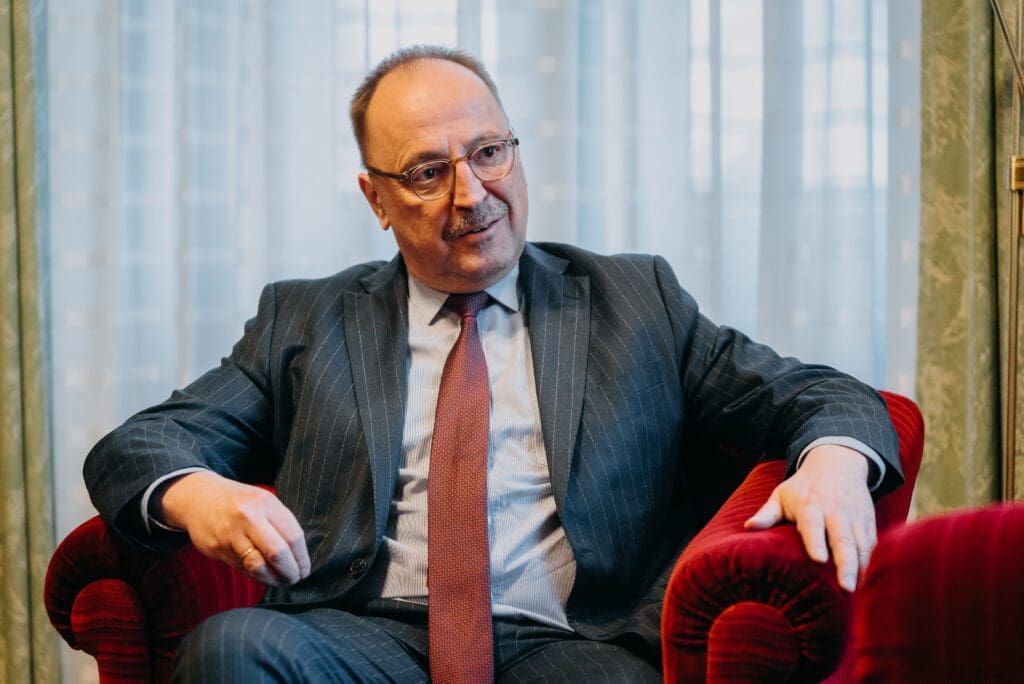
States have been joining NATO in several waves even before, but the general perception now is that the current wave is different. There’s war. That is why many are urging Finnish and Swedish accession, and only two countries have yet to ratify the enlargement. Are Turkey and Hungary currently delaying or pondering with regard to the ratification of the Finnish-Swedish accession, or are there other motivations behind the apparent dragging of feet?
I have just got back from Stockholm and Helsinki. The visit was a very good experience for me. On the one hand, I was able to experience that these societies really have gone through a rapid transformation in terms of attitudes to NATO membership. Sweden and Finland really envision their future under the protective umbrella of NATO. I was convinced of that. But I was also convinced that these two countries have very strong armies. In particular, the Finnish army is notable for its reserve system. Such a system does not operate in any NATO member state. Overall, I think that both countries represent an above-the-average added value. NATO is a strong alliance built from strong armies—the accession of these countries is a net gain from the point of view of NATO’s success. At the same time,
we cannot forgo the fact that Finnish and Swedish actors, especially in the midst of our ongoing disputes with the European Union, have been at the forefront of condemning Hungary in the international media
in recent years. Statements offensive to Hungary have appeared in the public realm, whether it is the Finnish or Swedish media, the academic world, the statements of members of the European Parliament, or even members of governments. So we thought that the moment of NATO enlargement was an excellent opportunity for reckoning. It is a good opportunity for us to face these two countries with those statements, but it is also a good opportunity for them to face the consequences. After all, on the one hand, it is them asking for something now, so their previous statements now sound different in light of that. On the other hand, in many cases, their own public opinion was not even aware of the statements made by members of their governments—not even those made by their prime ministers.
For example?
For example, former Finnish Prime Minister Jyrki Katainen stated that the courts in Hungary are not independent. That there is no media freedom in Hungary. In his statement, Eero Heinäluoma, the former president of the Hungarian Friendship Society and a left-wing Social Democrat member of the European Parliament, argued that democracy is coming to an end in Hungary. But before the elections, some Swedish representatives allowed themselves even harsher statements. Let’s add that it is particularly grave when, at the government level, the minister responsible for European affairs says that a racist view of history prevails in Hungary. These were particularly offensive sentences and offensive statements.
Did the parties sit down at the table with a serious intention to negotiate?
Both the Finnish and Swedish side received our delegation at a very high level. They may have sensed that it was time for us to make it clear to our hosts that if we are allies, we cannot talk about each other in that tone. The destiny of allies ultimately presumes a kind of friendship in arms.
It could very well happen that we must die for each other;
that’s what Article 5 of the Washington Treaty on NATO is actually about. Last year in Madrid, Hungary supported the expansion of NATO regardless of everything, and we made it clear that the Hungarian ruling party MPs will not set new conditions. That’s not how Turkey acted. Let me note that had Turkey acted differently, we would obviously have less room for facing our hosts with these issues.
Was the confronting of your hosts with the grievances you mentioned met with a sympathetic ear?
I think we succeeded in the end: on the one hand, we made it clear that we support them, that they will make NATO strong. At the same time, we were able to express our hope that in the future we will be able to find a way to open a new chapter in our bilateral relations. Because the current situation, looking back five to ten years, is not one of the brightest periods of our common history. Moreover, these last ten years can also be considered a historical low point in some respect. However, our historically formed relations with these two nations goes back a long way. It seemed obvious to take advantage of their NATO accession to overcome this, to getting past the grievances. In a sense, the situation in Finland, which is facing elections [due on 2 April], is particularly suitable for this. In Sweden, after the elections, the problems became less serious, since a right-wing, conservative government coalition was established there. Nevertheless, this development unquestionably meant a definite caesura in terms of the opinions formed about each other.
In your keynote address on 1 March, you outlined the Hungarian position on NATO expansion before the Hungarian parliament. In your remarks, Hungary’s ‘peace diplomacy’ was also discussed. What is this concept about?
It is very important to clearly see what Hungary’s peace diplomacy means and what it does not mean. Let’s start with the latter. It does not mean that we are pro-Putin. Because
it often seems as if pro-peace means pro-Russia, or specifically pro-Putin. No, it doesn’t mean that at all.
We unequivocally condemn Russian aggression. Several parliamentary resolutions —including the document now on the agenda, drafted on the occasion of the one-year anniversary of the Russian-Ukrainian war—make it clear that there is no excuse for Russian military aggression against Ukraine. Pro-peace also does not mean renouncing Ukrainian demands. After all, Ukraine is currently a victim, and there has been no doubt from the first moment that Hungary is committed to Ukraine’s territorial integrity and sovereignty.
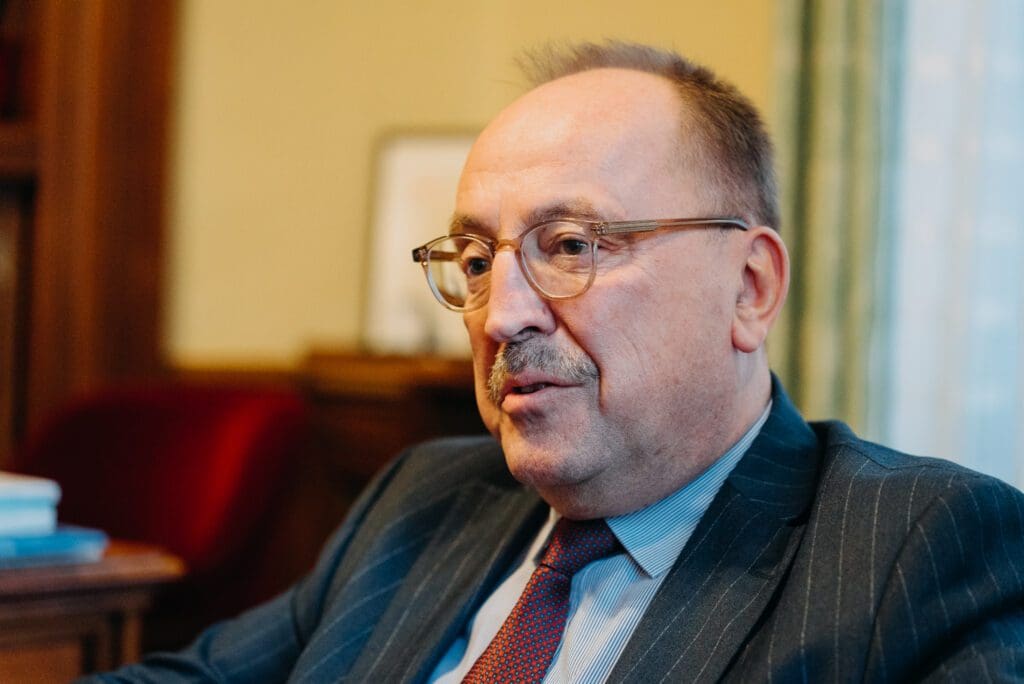
A significant part of the international public believes that whoever talks about peace is willing to make territorial concessions to the detriment of Ukraine…
That is not the case. Hungary supports Ukrainian integrity and sovereignty within the country’s internationally recognised borders. Of course, I have only talked about what our pro-peace diplomacy does not mean. Let me shed some light on the other side of it—that is, what it means. What we are seeing is that as we move forward in time, the situation is not moving towards de-escalation. We are concerned that the longer this war lasts, the more difficult it will seem to find a way out. We can only get out of this logic by finding a negotiated way out.
We consider it important that diplomats, not generals, oversee the resolving of the conflict.
We see an opportunity for diplomacy to find the appropriate compromises which may extend to all the details of the agreement as appropriate. But it is not Hungary’s job to state what those compromises are. It is not the task of Hungarian diplomacy, even if we are aware that there are unavoidable questions.
What do you mean?
I’m referring to territorial issues, or even to issues of international security policy orientation. It seems to be crucial that, in addition to the two warring parties, the world’s dominant players also take a role in the diplomatic effort. China has already come up with a peace plan. The Vatican has also released its own. The United States of America cannot be bypassed in such a settlement process either, although there are very few statement we could cite from the US that would clearly point in the direction of pro-peace diplomacy.
Are you optimistic or pessimistic about the US in that respect?
I think that in the United States of America the determination to turn to peace has not yet been born, just as in the case of the European Union. I think if the EU’s attitude can be compared to any international actor, then it is the most like that of the United States. But it must be understood that the West is not equal to the world as a whole, just as the nature of this armed conflict must also be appreciated. I think it is the right thing to do to represent a pro-peace position in international diplomacy. Let me not list the dramatic consequences of the escalation of the conflict in terms of the number of dead, or indeed the war crimes, for which there is simply no excuse. At the same time, if we do not stop the spiral of violence, it is a legitimate fear that it will be even more difficult to end the killing in the future.
You have mentioned the resolution proposal before the Hungarian parliament drafted in connection with the one-year anniversary of the Russo-Ukrainian war. What internal political debates is the document generating? Is it possible to expect a kind of national minimum to be worked out in relation to the document?
I think it is interesting in itself that each parliamentary party has submitted different amendments. Either they couldn’t come up with a joint package of proposals, or they didn’t want to. The concept of Mi Hazánk is more understandable since the party is clearly travelling on a separate political path. Their amendment proposals are obviously unacceptable to the entire parliament. In particular because they are questioning not only NATO expansion, but NATO itself. At the same time,
the amendment proposals from the opposition parties almost without exception struggle with the same problem.
Over the past year, these parties have embarked on a course that can be safely called the representation of the Western pro-war position. One of the lessons of the past year is that they do not want to abandon this course. Overall, I think that just as the position on the war played a decisive role in the result of the elections in April last year, the debate that took place in the last few days clearly confirmed that the opposition is still riding the same bandwagon. So the positions on the war are still very far from each other among the individual political forces. For my part, I find it regrettable that there is no consensus on such an important issue.
You have referred to the domestic political forces. In what state did the war find the V4 cooperation between the Czech Republic, Poland, Hungary and Slovakia last year, and what can be said about the formation today?
The Visegrád Cooperation was caught in a relatively upswing period of the war. We consider it very regrettable that the conflict eventually led to countless unspoken tensions and differences of opinion within the V4s as well. But I think that this delicate situation seemed to be easing by the beginning of autumn. It was instructive to see which meetings never happened and which meetings were held. But drawing my conclusion from the meetings of heads of state, speakers and prime ministers held since the end of the year, what I see is that the V4 has finally mastered the internal crisis caused by the war. The individual political forces have realised that the existing different positions should not be confused with everything that appears in the media.
What are the common points then?
An emphatic common point is that there is no V4 country that is on Russia’s side in this conflict, just as there is no country that does not consider it important to show solidarity with Ukraine. But there is more. Each country among the V4 considers it important to help Ukraine in the current situation. Hungary is also constantly looking for ways to help Ukraine. As far as Russia is concerned, we can also say that
we agree that it is necessary to prevent Moscow from posing a similar security policy risk to us, and for this purpose it is necessary to take very important joint steps
either in the field of both energy and defence policy. These goals are common. If we can agree on these goals, the rest is secondary—even if it’s very important matters.
So together with the other V4 countries, Hungary is looking for channels through which it can help Ukraine. What the Hungarian government communicates, on the other hand, is that weapons shipments constitute a red line. What kind of assistance can be given that does not cross the red line?
Above all, I would like to emphasise the humanitarian assistance. In the past year, the number of refugees in Ukraine reached ten million—I mean both external and internal refugees. Many European Union member states accepted refugees in very large numbers, and Hungary was not reluctant to do so either. About one and a half million refugees arrived in the territory of our country or passed through it, which means that Hungary was their home for a longer or shorter time during the first period of their flight. I think the humanitarian assistance announced by Hungary at the donor conference in Warsaw, the implementation of which is currently underway, is very important. We are talking about school construction, hospital construction and other institutional support, the significance of which, although symbolic, still goes beyond itself. As far as economic assistance is concerned, in March, within the framework of a very serious international cooperation,
Hungary helped Ukraine to detach itself from the Russian energy system and at the same time connect to the energy system of the European Union.
As a result, the connection with the highest capacity was created between Hungary and Ukraine. I would also like to mention the possibility of reverse gas and oil transport from Hungary, which Ukraine has used regularly in the past. Another very important recent development is the cooperation of our agriculture ministers. This was achieved through the creation of an intermodular railway interchange in Fényeslitké, enabling trans-shipment between the broad- and narrow-gauge railways. This is crucial for Ukraine in terms of grain exports. As for defence issues, the visit of the Hungarian Chief of Staff to Ukraine was an extremely important development. In comparison, there was almost no news about this in the Ukrainian or international press, even though the Chief of Staff also visited the area where certain war crimes were committed. In addition, there is bilateral cooperation between the two armies, which is overseen by NATO.
Hungary continues to train military doctors in several rotations for Ukraine.
Related to this is the medical treatment of injured children and soldiers in Hungary, for which Hungary made a clear offer. Finally, as far as hard military cooperation is concerned, I would also like to emphasise that although we are not supplying weapons, Hungary is a member of the European Union’s European Peace Facility, which enables us to help Ukraine by providing certain defence equipment. Hungary has provided its share. These are all related matters, regarding which we are also flexible and try to find the possibility of further assistance. We sense the clear mandate from the Hungarian people that the attacked must be helped.
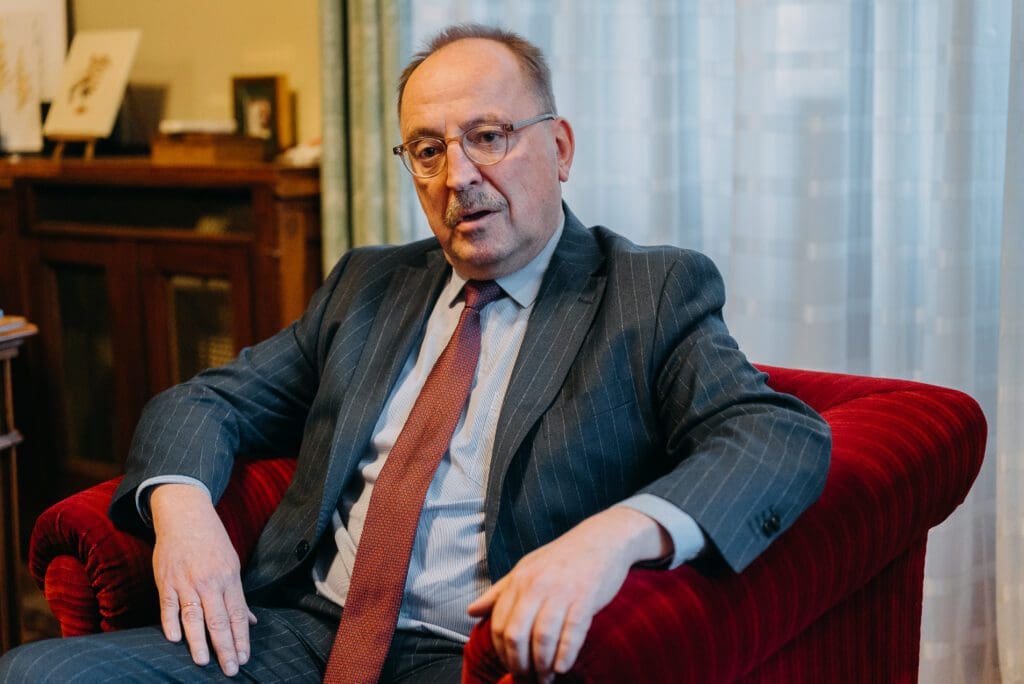
And what about the mandate for the protection of Transcarpathian Hungarians? The Basic Law is quite clear in this regard.
Indeed, when it comes to Ukraine, it is also about Transcarpathian Hungarians. But when it comes to Transcarpathian Hungarians, we are also talking about other Hungarian minorities across the border. Hungary’s commitment in this area cannot therefore be bypassed. And indeed,
it is our constitutional obligation to do everything for the Transcarpathian Hungarian community.
I consider it important that in the past period we have managed to help all educational, health and church institutions to continue their activities, even despite there being fewer and fewer Hungarians there. On the one hand, there is a high rate of emigration also among Hungarians, and on the other hand, and this is extremely tragic, Hungarian soldiers are also taken to the Eastern Front, where they have to sacrifice their lives in a conflict that is not something they can necessarily identify with. In this situation, we ask Ukraine for understanding regarding our concerns expressed in the field of minority rights, and we would like to find an appropriate solution to these concerns over time—together with Ukraine.
Do you expect the situation to be resolved on a bilateral basis or with international assistance?
Both. Look, Hungary was one of the first to support Ukraine’s European Union accession process. At the same time, when it comes to Ukraine’s accession,
we consider it extremely important that Kyiv ensure basic human and minority rights.
The same was a key moment in the case of Serbia before, and it was precisely this that finally brought about a historic reconciliation. As a result of the negotiations, Belgrade decided to create a kind of minority action plan. This can also be considered a result achieved by Hungarian diplomacy in connection with the Serbian accession process. We consider it important to formulate a similar goal with regard to Transcarpathian Hungarians and other minorities in Ukraine. In fact, this requirement of ours was recorded at the summit of the European Commission and the Ukrainian government in Kyiv. This is an important development, as is the fact that the Parliamentary Assembly of the Council of Europe has referred the Ukrainian minority law to the Venice Commission. I believe that it can greatly help Ukraine, which has entered the path of EU integration, if it incorporates the proposals of the Venice Commission into the law on the protection of minorities, which currently leaves much to be desired.

